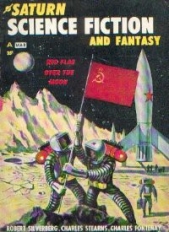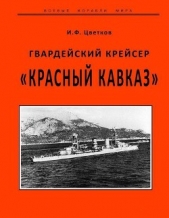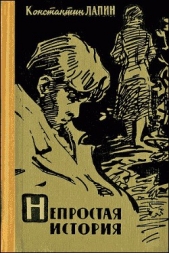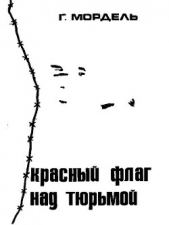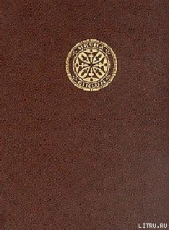Красный флаг: история коммунизма
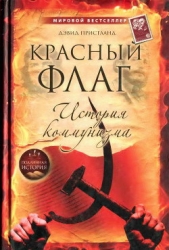
Красный флаг: история коммунизма читать книгу онлайн
Что думают на Западе о коммунизме и советском строе, что думали раньше? Кто был первым коммунистом?
Фундаментальный труд английского профессора Оксфордского университета Дэвида Пристланда «Красный флаг. История коммунизма» представляет собой неожиданный взгляд на «коммунистический проект» с позиции стороннего наблюдателя.
Оригинальные суждения западного автора, интересные факты, неожиданные параллели, взгляд на советское общество как на «цивилизацию инопланетян» — все это, без сомнения, вызовет неподдельный интерес у отечественного читателя.
Внимание! Книга может содержать контент только для совершеннолетних. Для несовершеннолетних чтение данного контента СТРОГО ЗАПРЕЩЕНО! Если в книге присутствует наличие пропаганды ЛГБТ и другого, запрещенного контента - просьба написать на почту [email protected] для удаления материала
Kuo-kang Shao, Zhou Enlai and the Foundations of Chinese Foreign Policy (New York, 1996).
S. B. Liss, Marxist Thought in Latin America (Berkeley, 1984).
N. Miller, Soviet Relations with Latin America, 1959-1987 (Cambridge, 1989).
R. Mortimer, Indonesian Communism under Sukarno: Ideology and Politics, 1959-65 (Ithaca, 1974).
T. Nossiter, Communism in Kerala. A Study in PoliticalAdaptation (London, 1982).
L. A. Perez, Cuba: Between Reform and Revolution, 2nd edn (New York, 1995).
M. Perez-Stable, The Cuban Revolution. Origins, Course and Legacy (New York, 1999).
V. Prasad, The Darker Nations: A People's History of the Third World (New York, 2007).
C. G. Rosberg and Т. М. Callaghy (eds.), Socialism in Sub-Saharan Africa: A New Assessment (Berkeley, 1979).
S. Schlesinger and S. Kinzer, Bitter Fruit The Story of the American Coup in Guatemala (Cambridge, Mass., 2005).
L. Schoultz, Beneath the United States: A History of U.S. Policy toward Latin America (Cambridge, Mass., 1998).
L. Senghor, On African Socialism, trans. M. Cook (New York,
1964).
J. Smail, Bandung in the Early Revolution, 1945-46 (Ithaca, 1964).
P. Snow, The StarRaft: China's Encounter with Africa (New York, 1988).
T. Szulc, Fidel: A Critical Portrait (New York, 1987).
H. Thomas, The Cuban Revolution (London, 1986).
G. Warburg, Islam, Nationalism and Communism in a Traditional Society: The Case of Sudan (London, 1978).
O. A. Westad, The Global Cold War: Third World Interventions and the Making of Our Times (New York, 2005).
T. Wickham-Crowley, Guerrillas and Revolution in Latin America. A Comparative Study of Insurgents and Regimes since 1956 (Princeton, 1992).
V. Zubok, A Failed Empire. The Soviet Union in the Cold War from Stalin to Gorbachev (Chapel Hill, 2007).
S. Bialer, The Soviet Paradox: External Expansion, Internal Decline (London, 1986).
G. W. Breslauer, Khrushchev and Brezhnev as Leaders: Building Authority in Soviet Politics (London, 1982).
M. Burawoy and J. Luk6cs, The Radiant Past: Ideology and Reality in Hungary's Road to Capitalism (Chicago, 1992).
G. W. Creed, Domesticating Revolution: From Socialist Reform to Ambivalent Transition in a Bulgarian village (University Park, Pa., 1998).
D. Deletant, Ceauseescu and the Securitate: Coercion and Dissent in Romania, 1965-1989 (London, 1995).
D. Deletant, Communist Terror in Romania: Gheorghiu-Dej and the Police State, 1948-1965 (London, 1999).
G. Ekiert, The State against Society: Political Crises and Their Aftermath in East Central Europe (Princeton, 1996).
M. Fischer, Nicolae Ceau§escu. A Study in Political Leadership (London, 1989).
M. Fulbrook, Anatomy of a Dictatorship: Inside the GDR, 1949-1989 (New York, 1995).
M. Fulbrook, The People's State: East German Society from Hitler to Honecker (New Haven, 2005).
С. Gati, Hungary and the Soviet Bloc (Durham, NC, 1986).
G. Golan, Reform Rule in Czechoslovakia: The Dubcek Era, 1968-1969 (Cambridge, 1973).
M. Haraszti, A Worker in a Worker's State, trans. M. Wright (New York, 1978).
A. Heitlinger, Women and State Socialism: Sex Inequality in the Soviet Union and Czechoslovakia (London, 1979).
К. Н. Jarausch (ed.), Dictatorship as Experience: Towards a Socio-Cultural History of the GDR, trans. E. Duffy (New York, 1999).
D. Kideckel, The Solitude of Collectivism: Romanian Villagers to the Revolution and Beyond (Ithaca, 1993).
R. King, A History of the Romanian Communist Party (Stanford, 1980).
J. Kopstein, The Politics of Economic Decline in East Germany, 1945-1989 (Chapel Hill, 1997).
M. Lampland, The Object of Labor: Commodification in Socialist Hungary (Chicago, 1995).
D. Lane, The Rise and Fall of State Socialism: Industrial Society and the Socialist State (Cambridge, 1996).
P. Lendvai, Eagles in Cobwebs. Nationalism and Communism in the Balkans (London, 1969).
M. Myant, The Czechoslovak Economy 1948-1988: The Battle for Economic Reform (Cambridge, 1989).
J. Navratil, The Prague Spring 1968: A National Security Archive Documents Reader, trans. M. Kramer et al. (Budapest, 1998).
P. Pittaway, Eastern Europe 1939-2000 (London, 2000).
T. W. Ryback, Rock around the Bloc: A History of Rock Music in Eastern Europe and the Soviet Union (New York, 1990).
V. Shlapentokh, Public and Private Life of the Soviet People: Changing Values in post-Stalin Russia (New York, 1989).
H. G. Skilling, Charter 77 and Human Rights in Czechoslovakia (London, 1981).
V. Tismaneanu, Stalinism for All Seasons: a Political History of Romanian Communism (Berkeley, 2003).
R. Tokes, Hungary's Negotiated Revolution: Economic Reform, Social Change, and Political Succession, 1957-1990 (Cambridge, 1996).
M. Vickers, The Albanians: A Modern History (London, 1999).
A. Walder, Communist Neo-Traditionalism. Work and Authority in Chinese Industry (Berkeley, 1986).
K. Williams, The Prague Spring and Its Aftermath: Czechoslovak Politics 1968-70 (Cambridge, 1997).
S. Wolle, Die heile Welt der Diktatur. Alltag und Herrschaft in der DDR, 1971-1989 (Berlin, 1998).
A. Yurchak, Everything was Forever, until It was No More. The Last Soviet Generation (Princeton, 2006).
Xiaobo Lu and Elizabeth Perry, Danwei. The Changing Chinese Workplace in Historical and Comparative Perspective (Armonk, NY, 1997).
C. Andrew and V. Mitrokhin, The KGB and the World. The Mitrokhin Archive II (London, 1999).
A. Arnold, Afghanistan's Two-Party Communism: Parcham and Khalq (Stanford, 1983).
T. Babile, To Kill a Generation: Red Terror in Ethiopia (Washington, DC, 1989).
R. R. Balsvik, Haile Sellassie's Students: The Intellectual and Social Background to Revolution, 1952-1977 (East Lansing, Mich., 1985).
N. G. Bermeo, The Revolution within the Revolution: Workers' Control in Rural Portugal (Princeton, 1986).
D. Birmingham, Frontline Nationalism in Angola & Mozambique (London, 1992).
A. Bloom and W. Breines (eds.), Takin'It to the Streets. A Sixties Reader (New York, 1995).
H. S. Bradsher, Afghan Communism and Soviet Intervention (Oxford, 1999).
P. R. Brass and M. F. Franda (eds.), Radical Politics in South Asia (Cambridge, Mass., 2005).
P. Chabal, Amilcar Cabral: Revolutionary Leadership and People's War (Cambridge, 1983).
P. Chabal and D. Birmingham (eds.), A History of post-Colonial Lusophone Africa (London, 2002).
P. Chabal and N. Vidal, Angola: The Weight of History (London, 2007).
D. P. Chandler, Brother Number One: A Political Biography of Pol Pot (Boulder, 1992).
D. P. Chandler, The Tragedy of Cambodian History: Politics, War and Revolution since 1945 (New Haven, 1991).
D. P. Chandler and B. Kiernan (eds.), Revolution and Its Aftermath in Kampuchea: Eight Essays (New Haven, 1983).
D. P. Chandler, B. Kiernan and C. Boua (eds. and trans.), Pol Pot Plans the Future.-Confidential Leadership Documents from Democratic Kampuchea, 1976-1977 (New Haven, 1988).
I. Christie, Machel of Mozambique (Harare, 1988).
C. Clapham (ed.), African Guerrillas (Oxford, 1998).
С Clapham, Transformation and Continuity in Revolutionary Ethiopia (Cambridge, 1988).
